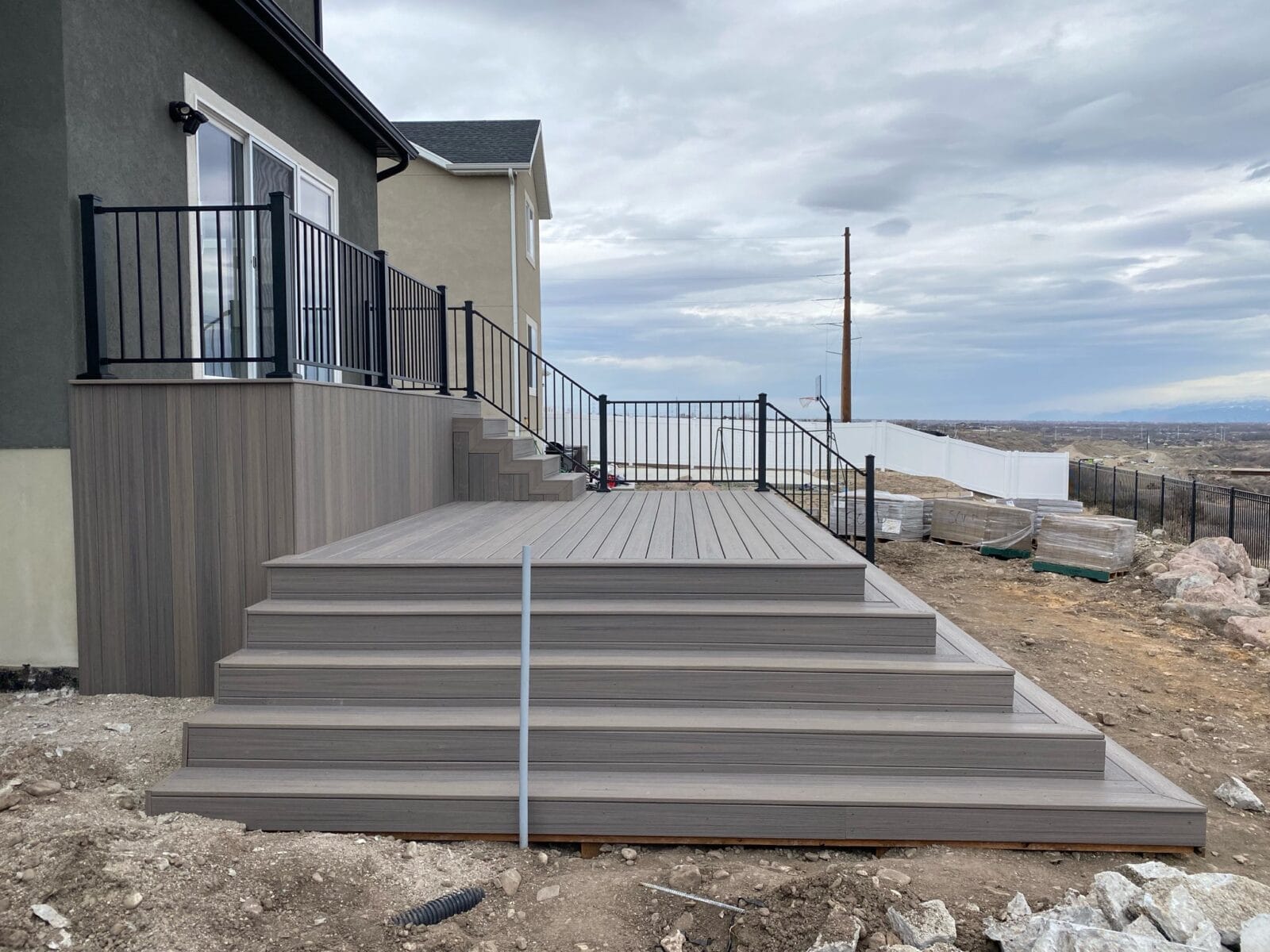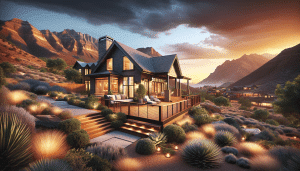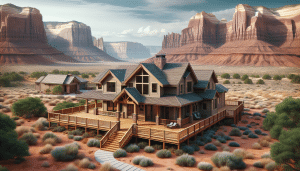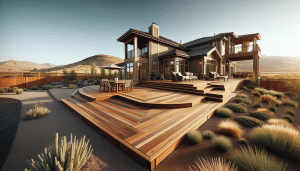Choosing the right decking material is a critical decision when planning your deck project. At Utah Deck Company, we understand that the choice between natural wood and engineered decking can impact not only the aesthetics but also the durability and maintenance of your deck. In this guide, we’ll compare these two popular options to help you make an informed decision.
Natural Wood Decking
Pros:
- Natural Beauty: Natural wood, like cedar, redwood, or exotic hardwoods, offers unmatched beauty and character. The grains and tones of real wood lend a warm and inviting look to your deck.
- Sustainability: Some types of natural wood, when sourced responsibly, can be eco-friendly. Look for certifications like FSC (Forest Stewardship Council) to ensure sustainability.
- Easy to Work With: Wood is relatively easy to cut, shape, and install, making it a favorite among DIY enthusiasts.
- Renewable: With proper maintenance and care, wood decks can be renewed and refinished to extend their lifespan.
Cons:
- Maintenance: Natural wood decks require regular maintenance, including staining, sealing, and periodic refinishing. Neglecting maintenance can lead to rot, decay, and splintering.
- Prone to Pests: Some wood types are susceptible to pests like termites and carpenter ants. Proper treatment is necessary to prevent infestations.
- Weathering: Natural wood decks can be affected by weather, including fading, warping, and cracking over time.
Engineered Decking (Composite, PVC, and More)
Pros:
- Low Maintenance: Engineered decking materials, such as composite and PVC, are virtually maintenance-free. They resist fading, staining, and require no staining or sealing.
- Durability: Engineered materials are designed to withstand the elements. They are less prone to rot, mold, and pests.
- Consistency: Engineered decking offers a consistent appearance and color, with no natural variations or knots.
- Longevity: Many engineered decking materials come with extended warranties, some lasting up to 25 years or more.
Cons:
- Initial Cost: Engineered decking materials tend to have a higher upfront cost compared to natural wood.
- Limited Aesthetics: While modern engineered materials mimic the look of wood, they may not capture the same natural beauty and warmth.
- Heat Absorption: Some engineered materials can become hotter than natural wood when exposed to direct sunlight.
- Non-Biodegradable: Engineered materials are not biodegradable, and disposing of them at the end of their lifespan can be a concern.
Conclusion
The choice between natural wood and engineered decking depends on your preferences, budget, and maintenance preferences. Natural wood offers timeless beauty but requires more upkeep. Engineered materials provide low maintenance and durability, making them a practical choice.
At Utah Deck Company, we specialize in both natural wood and engineered decking options, and we can help you select the best material for your specific needs. Contact us at (801) 921-6826 or visit our website here for expert advice and quality deck construction.





